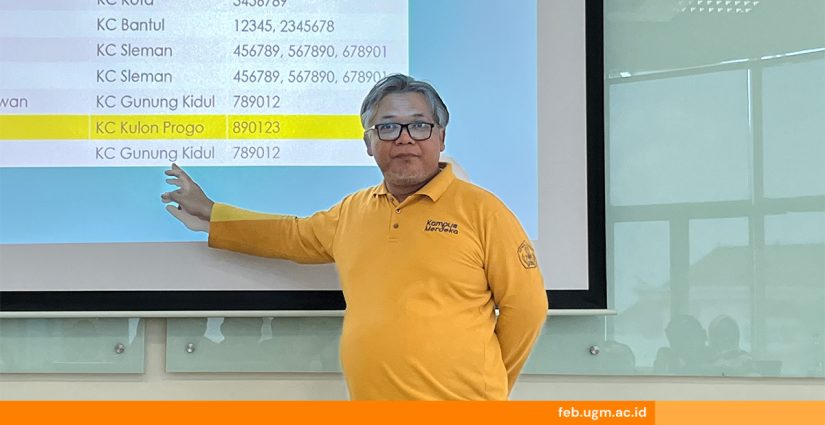
The Faculty of Economics and Business, Universitas Gadjah Mada (FEB UGM), continues to demonstrate its commitment to enhancing the competencies of its professional staff through a series of training programs. One such effort was the Structured Query Language (SQL) Training, held on Friday (18/7) at Room P.7.2, 7th Floor, Pertamina Tower, FEB UGM. The training aimed to provide participants with practical knowledge and skills in managing and analyzing data using databases an essential capability in today’s digital era.
Head of the FEB UGM Administrative Office, Nur Bakti Susilo, S.E., Ak., CA., ASEAN CPA, emphasized the importance of an in-depth understanding of databases and information technology for professional staff. According to him, mastering these skills supports daily work operations and is also part of broader efforts to foster professionalism in the workplace.
He stated, “Wherever we are, technology will always play a role, so we must continuously upgrade our knowledge and avoid getting trapped in routines.”
Nur Bakti expressed his hope that this training would help FEB UGM’s professional staff understand the importance of efficient data management and equip them with technical skills in using SQL as a powerful tool for data analysis.
The training featured Haris Sri Wibowo from the UGM Directorate of Information Technology as the main speaker. He opened the session by highlighting the vital role of databases in simplifying data management.
“There must be a method or standard for managing data, which led to the development of SQL (Structured Query Language) a language used to access data within a DBMS (Database Management System), or software that facilitates the manipulation of databases to retrieve the desired information,” he explained.
Haris added that DBMS platforms such as MySQL allow data processing to be more structured and reliable.
“MySQL is one of the most widely used database systems today due to its reliable performance, open-source nature, and wide adoption across academic and industrial sectors. It ensures data integrity, security, centralized information, and collaborative efficiency in data processing,” said Haris.
The training also included practical sessions, covering database management, table creation and manipulation, data selection and sorting, data filtering, and managing user connections through a client-server model. In addition to basic SQL and types of databases, the training introduced the concept and importance of database normalization.
Reporter: Shofi Hawa Anjani
Editor: Kurnia Ekaptiningrum
Sustainable Development Goals










